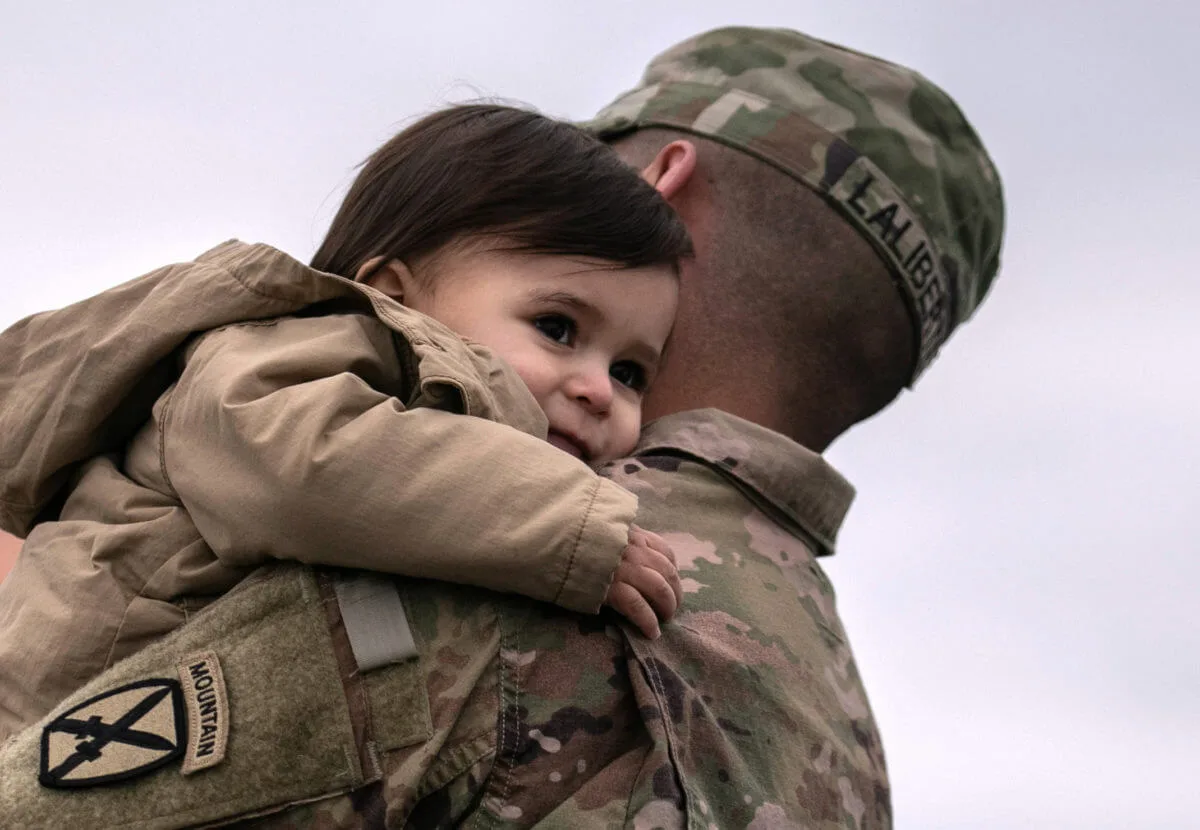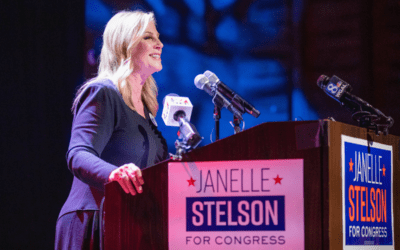
Despite their service to the country, the US military has not been spared the economic ravages of the pandemic and hunger has soared among military families, according to reports. (Photo by John Moore/Getty Images)
Despite their service, military families have not been spared the economic ravages of the pandemic and food insecurity is reportedly soaring.
Over the past nine months, hunger and food insecurity have soared across the United States, as the coronavirus pandemic has destroyed jobs, livelihoods, and thrust tens of millions into precarious economic situations. Among the many Americans struggling to put food on the table are America’s military families, whose sacrifices have not protected them against hunger.
Nearly 40% of active-duty families said they needed food and nutrition assistance since the pandemic began, according to a recent study from the Institute for Veterans and Military Families at Syracuse University.
The issue isn’t a new one; a 2018 survey from the advocacy group Blue Star Families found that between 7% and 18% of military families and veterans indicated that someone in their household had sought emergency food assistance through a food bank, food pantry, or charitable organization. A 2019 Military Family Advisory study found that 15% struggle to feed their families.
Sorting Fact From Fiction: Sign Up for COURIER’s Newsletter.
But there’s no question the pandemic has exacerbated the crisis. Military spouses are among those who’ve lost their jobs, some of their children are no longer receiving free- or reduced- price meals at school, and military families are often unable to obtain food assistance due to a quirk in the way benefits are calculated. Many military families receive a housing allowance, an “entitlement” that is calculated as income and makes it more difficult for them to qualify for the Supplemental Nutrition Assistance Program (SNAP), which provides food aid.
In Fort Bragg, North Carolina, the largest military base in the US, there was a 40% increase in requests for groceries from the base’s YMCA during the spring, the New York Times reported Wednesday. That was accompanied by a record number of grocery requests to AmericaServes, a network that provides aid to military families.
Similar stories are emerging around the country, hunger advocates told the Times and most Americans don’t have a clue this is happening.
“There is something that’s so unjust about it that the families who are making significant sacrifices for our country, and are not able to fully meet their basic needs,” Josh Protas, the vice president of public policy at Mazon, a Jewish group focused on hunger, told the Times. “The charitable sector doesn’t have the capacity to fully address this issue—nor should it. I really think the Pentagon has really tried to sweep this under the rug.”
RELATED: Military Suicides Have Gone Up 20% This Year. Here’s How Army Leaders Plan to Address That.
The Trump Administration’s Defense Department is working on a report to Congress on the matter, but believes the issue of hunger on military bases is exaggerated, Pentagon spokesman, Maj. César Santiago, told the Times.
Advocacy groups like Mazon and lawmakers like Sen. Tammy Duckworth (D-Illinois), a veteran, disagree and have pushed to change how SNAP is calculated, which would allow many more families to obtain food assistance through the program.
“The scope and severity of food insecurity for military families have been exacerbated by the COVID-19 crisis. The pandemic is not only a national health emergency but also a time of urgent concern for those who are most vulnerable in our country. This includes our service members and their families who were already struggling,” Mazon and a coalition of military and hunger advocacy groups wrote to leaders of the Senate Armed Services Committee in October. “Those who make significant sacrifices for our country should never struggle to meet their family’s basic needs.”

For Rep. Susan Wild, supporting PA families includes reproductive rights and much more
Rep. Susan Wild wants to be very clear with Pennsylvanians: Donald Trump is committed to taking away women’s reproductive freedom, but he is not...

School districts working with anti-LGBTQ groups can cost your kids’ schools millions
Parents across South Central Pennsylvania are worried about the potential financial impacts working with anti-LGBTQ groups may have on their school...

VIDEO: Trump distances himself from his anti-abortion views
Donald Trump appeared on WGAL on Tuesday and continued to distance himself from his anti-abortion views claiming that reproductive rights are now a...

VIDEO: Community pushback gets school board to rescind decision on denying gay actor’s visit
Cumberland Valley School Board offered a public apology and voted to reinstate Maulik Pancholy as a guest speaker a week after the board voted to...

VIDEO: Project 2025 brings nuclear armageddon back into vogue
Project 2025 is a titanic document, with plans ranging from cutting half of all government employees to targeting reproductive rights on a scale...





